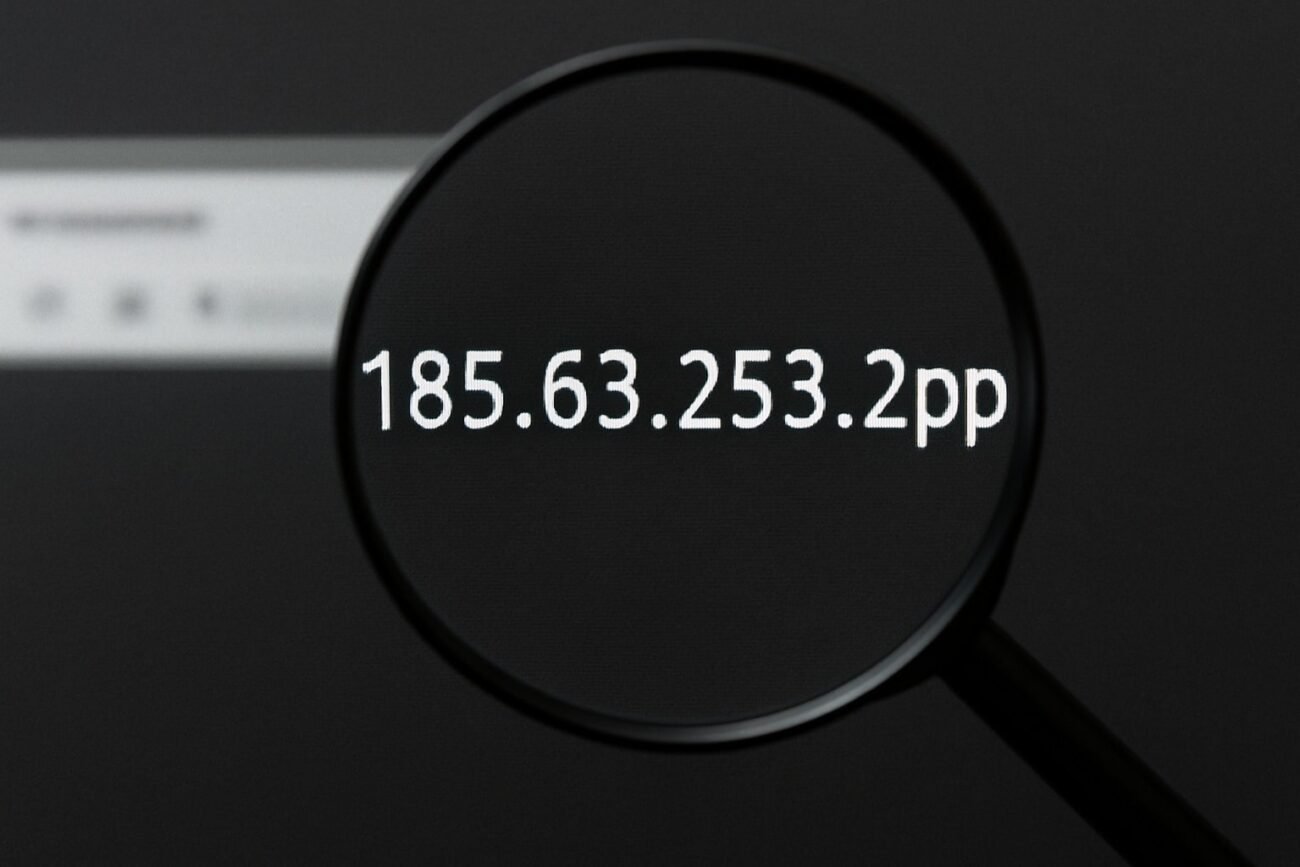When browsing the web or reviewing server logs, you may come across strange-looking identifiers. One such example is 185.63.253.2pp. At first glance, it resembles a standard IP address, but the extra “pp” at the end makes it unusual.
This article breaks down what 185.63.253.2pp is, why it shows up, potential risks associated with it, and what you should do if you encounter it.
Understanding 185.63.253.2pp
The IP Address Structure
Normally, an IPv4 address looks like this: 185.63.253.2—a set of four numbers ranging between 0 and 255, separated by dots. This format is universal and used to identify devices and servers on the internet.
The term 185.63.253.2pp follows this structure but adds “pp” at the end. This suffix makes it invalid as a real IP address.
Possible Explanations
Several reasons could explain why you might see this string online:
- Typographical Error – Someone may have mistyped the IP address.
- Custom Tagging or Internal Code – Some organizations use suffixes like “pp” for logging, testing, or internal tracking.
- Obfuscation – In cybersecurity, unusual formats are sometimes used to disguise malicious activity from automated filters.
- Spam or Analytics Pollution – In some cases, strings like this appear in referral spam, artificially inflating analytics data.
Why You Might Encounter 185.63.253.2pp
People typically notice identifiers like this in three main contexts:
- Server or Application Logs – Developers or administrators may spot it while troubleshooting network traffic.
- Analytics Reports – Marketers and site owners sometimes see it in referral data, often linked to spam.
- Suspicious Links – Cybercriminals may disguise links with unusual strings to mislead users or security systems.
Security Risks To Be Aware Of
Although 185.63.253.2pp is not a valid IP address, it can raise security and trust concerns:
- Bypassing Filters – Non-standard formats may slip past poorly configured security systems.
- Phishing and Spam – Unusual identifiers often appear in low-quality or malicious websites.
- Analytics Distortion – If left unchecked, it can pollute website traffic reports, leading to bad business decisions.
How To Handle It Safely
If you come across 185.63.253.2pp, here’s what you should do:
- Do Not Click Unknown Links – Treat it as suspicious unless you can verify the source.
- Check the Base IP – Remove “pp” and analyze 185.63.253.2 using WHOIS or IP reputation tools.
- Filter Analytics Data – Block such entries to keep your reports clean and accurate.
- Use Security Tools – Enable firewalls, intrusion detection, and anti-malware software to flag unusual traffic.
- Educate Your Team – If you work in IT or marketing, make sure colleagues know how to recognize these anomalies.
Practical Example
Suppose you run a website and notice 185.63.253.2pp appearing in your Google Analytics referral data. Instead of clicking it, you should:
- Verify the base IP (185.63.253.2).
- Cross-check it with cybersecurity databases.
- Exclude the string from future reports.
- Monitor traffic to ensure no suspicious activity continues.
This ensures your business decisions remain based on accurate and safe data.
Key Takeaways
- 185.63.253.2pp is not a valid IP address.
- It may appear due to typos, testing, tracking codes, or malicious intent.
- The biggest risks are spam, analytics distortion, and potential security bypass attempts.
- The best response is to investigate, filter, and monitor without interacting directly.
Final Thoughts
The digital world is filled with codes and identifiers that can look confusing. While 185.63.253.2pp isn’t a standard IP address, its appearance should not be ignored. Whether you are a casual internet user, a website owner, or an IT professional, treating unusual identifiers with caution is always the smart move.
By taking proactive steps—such as checking IP reputations, filtering out spam, and maintaining strong cybersecurity practices—you can protect your systems and keep your data reliable.
FAQ’s:
Is 185.63.253.2pp A Real IP Address?
No. While it looks like an IP address, the extra “pp” makes it invalid. A proper IPv4 address only contains numbers separated by dots.
Why Am I Seeing 185.63.253.2pp In My Analytics Or Logs?
This can happen due to referral spam, tracking errors, or intentional obfuscation. It may also be the result of someone mistyping the actual IP address 185.63.253.2.
Could 185.63.253.2pp Be Dangerous?
Yes and no. The string itself is not harmful, but if it appears in links or referrals, it could be connected to spam or malicious activity. Always treat unknown identifiers with caution.
How Can I Check If The Base IP (185.63.253.2) Is Safe?
You can use tools like WHOIS lookup, IP reputation checkers, or services such as VirusTotal to see if the IP is linked to spam, malware, or suspicious activity.
What Should I Do If I Find 185.63.253.2pp In My Website Traffic Reports?
- Exclude it from your analytics to prevent distorted data.
- Monitor your server logs for repeated entries.
- Block the base IP if it shows suspicious behavior.
Hungry for more? Head over to my website for fresh articles.
